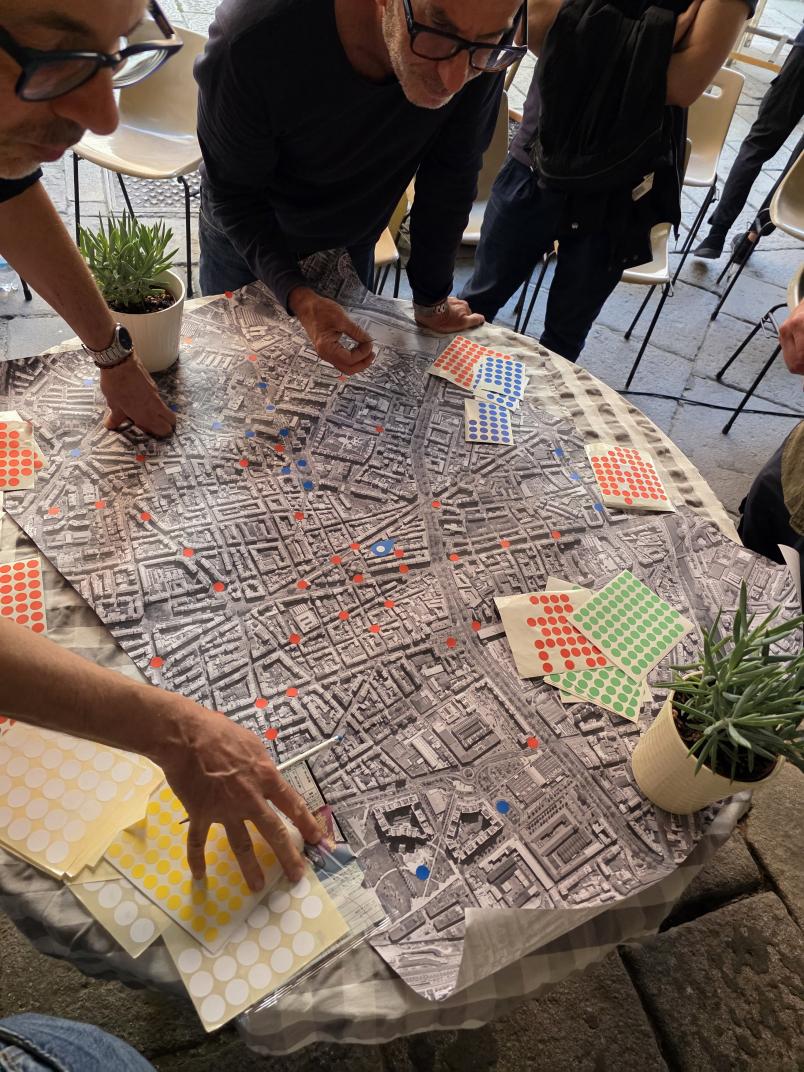
Citizen Science Against Urban Heat

Measuring air temperature with the direct participation of citizens to improve territorial governance and increase local involvement in climate adaptation programs – this is the goal of the Interreg Alpine Space COMMONAIR project (COMmon Measurements ONsite in the AlpIne Region), led by Politecnico di Torino in partnership with three other European institutions.
"COMMONAIR emerged from the observation of climatic trends in the Alpine region, one of the areas in Europe most severely affected by rising temperatures. Cities surrounded by mountains are increasingly exposed to risks such as heatwaves, poor air quality, and public health challenges. However, public awareness of the necessary action, both in terms of policies and individual behaviour, remains low. That’s why we initiated this project”, explains Riccardo Pollo, scientific coordinator of the project and Professor at the Interuniversity Department of Regional and Urban Studies and Planning-DIST at Politecnico di Torino. He adds, “Starting from citizen-led air temperature monitoring, COMMONAIR aims to promote informed discussions, more attentive policies, and improved adaptation to climate challenges. Through cooperation among regions and countries, the project also seeks to facilitate the exchange of best practices to enhance climate resilience in the Alps”.
The two-year project began in January 2025. In Turin, temperature monitoring campaigns were carried out between May and June, and again in July. The selected areas were Barriera di Milano and Regio Parco in the northern part of the city. Two measurement methods were used: fixed weather stations and portable temperature sensors entrusted to citizen volunteers, who carried them throughout their daily routines.
Students from the Scuole Tecniche San Carlo in Turin and the Valdese High School in Torre Pellice (a municipality in the Metropolitan Area of Turin) were also involved. In the next phases of the project, alongside continued data collection, efforts will focus on organising public information events and fostering deeper cooperation between citizens and the city administration. “Our goal is also to host public events with the City of Turin, which has been a project partner from the outset, collaborating with the social enterprise LAQUP, which works on sustainable mobility, and the regional environmental protection agency ARPA”, continues Professor Pollo. COMMONAIR also involves Daniela Ciaffi, Professor at DIST and supporting the sociological dimension of the project, researcher Chiara Ariagno, and PhD candidate Anja Pejovic, all affiliated with DIST. A series of maps will also be produced – a mapping effort that will integrate both the collected data and the perceptions of participants, while also suggesting potential areas for improvement.
COMMONAIR aligns closely with the environmental and technological planning research area of DIST, which studies technologies and processes that can be applied at the territorial and local levels to improve environmental conditions. A distinguishing feature of the project is its strong interdisciplinary approach, combining technical and sociological perspectives, with active citizen and institutional involvement from the beginning.
The work carried out by Politecnico di Torino and the city of Turin is complemented by activities from other partners: Technische Universität Wien, ZHAW Zurich University of Applied Sciences, and the Ville de Grenoble in France. Participating institutions also include the Metropolitan City of Turin, the Piedmont Regional Authority, as well as the cities of Vienna and Basel.
While Turin focused primarily on heatwaves in its northern neighbourhoods, similar campaigns were carried out in Vienna and Zurich (the latter using drones), while in Grenoble, school areas were the main focus. Each research group employed context-specific field methodologies tailored to their local objectives and conditions. The added value of the Interreg program lies in the collaborative approach: sharing research strategies and interventions to pursue the common goal of raising awareness and improving policies for territorial governance.